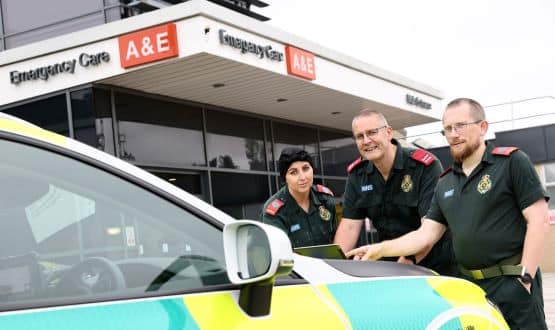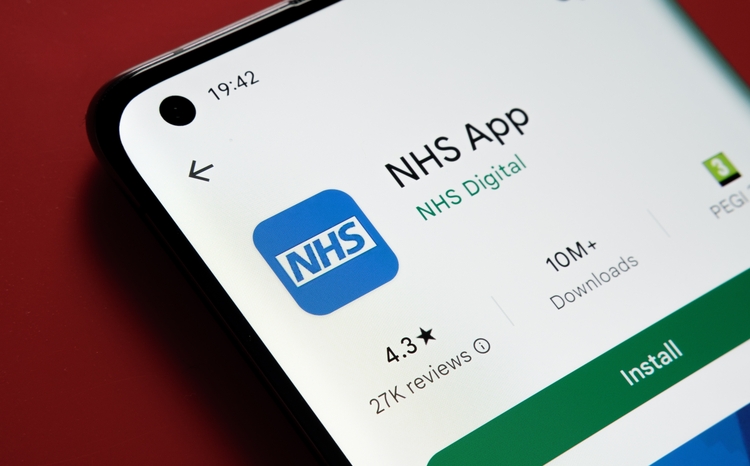North East Ambulance Service to extend telemedicine trial
- 28 July 2022

North East Ambulance Service has been working in partnership with the region’s Integrated Stroke Delivery Network (ISDN) on a telemedicine project to speed up care and improve patient outcomes.
The ambulance service is set to implement audio-visual calling from its ambulances direct to the stroke unit in a move that will improve emergency stroke care.
North East Ambulance Service (NEAS) was one of five ambulance services in the country that was awarded funding from NHS England as part of the Global Digital Exemplar (GDE). Part of the programme saw the trust trial telemedicine in the NEAS emergency operations centres. The trial allowed clinicians in the clinical assessment unit to video call 999 and 111 callers to ensure the patients received appropriate care.
In an extension of that trial, ambulance clinicians will soon be able to video call stroke units directly. This means stroke specialists can assess the patient face-to-face before they arrive at hospital and decide whether they should proceed to the stroke unit or can safely be seen at the emergency department. By doing so patients can receive the care they need faster, leading to improved patient outcomes.
Dr Graham McClelland, a research fellow at North East Ambulance Service, is currently funded by the Stroke Association to explore telemedicine for prehospital stroke care.
He said: “We do know that rapid identification, rapid transport to specialist stroke care and pre-alerting the hospital about the stroke patient are the best things NEAS clinicians can do for stroke patients.
“Because stroke is such a time critical condition, we hope to demonstrate that video triage improves communications between NEAS and the stroke services and therefore informs better decisions about the right destination and care for each patient.
“Getting the stroke team involved with the patient before they even get through the front door of the hospital should also reduce the time it takes for the patient to be seen when they arrive at hospital. Even if it’s only a five-minute reduction in time, this could make all the difference to a patient’s outcome.”
The new telemedicine project is expected to start in August at the Queen Elizabeth Hospital in Gateshead and Darlington Memorial Hospital. Neither of these hospitals have stroke units. They will be followed by University Hospital of North Durham and the Royal Victoria Infirmary in Newcastle. Following this roll-out the project will be evaluated, supported by Newcastle University, and assessed as to whether it will be beneficial to roll out region-wide.
Dr Stuart Huntley, clinical lead for the North East and North Cumbria ISDN said: “It’s a great achievement to have been one of only a handful of collaborations to be awarded this funding to explore the possible benefits of an extended telemedicine interaction between paramedics and stroke specialists. Better access to effective treatments for stroke patients in the right place, at the right time is a priority for our ISDN and we look forward to seeing the results of this important project.”
In May 2021, South East Coast Ambulance received iPads funded by NHSX (now merged with NHS England), and used them to facilitate video calling to consultants so that stroke patients could receive timely care.




